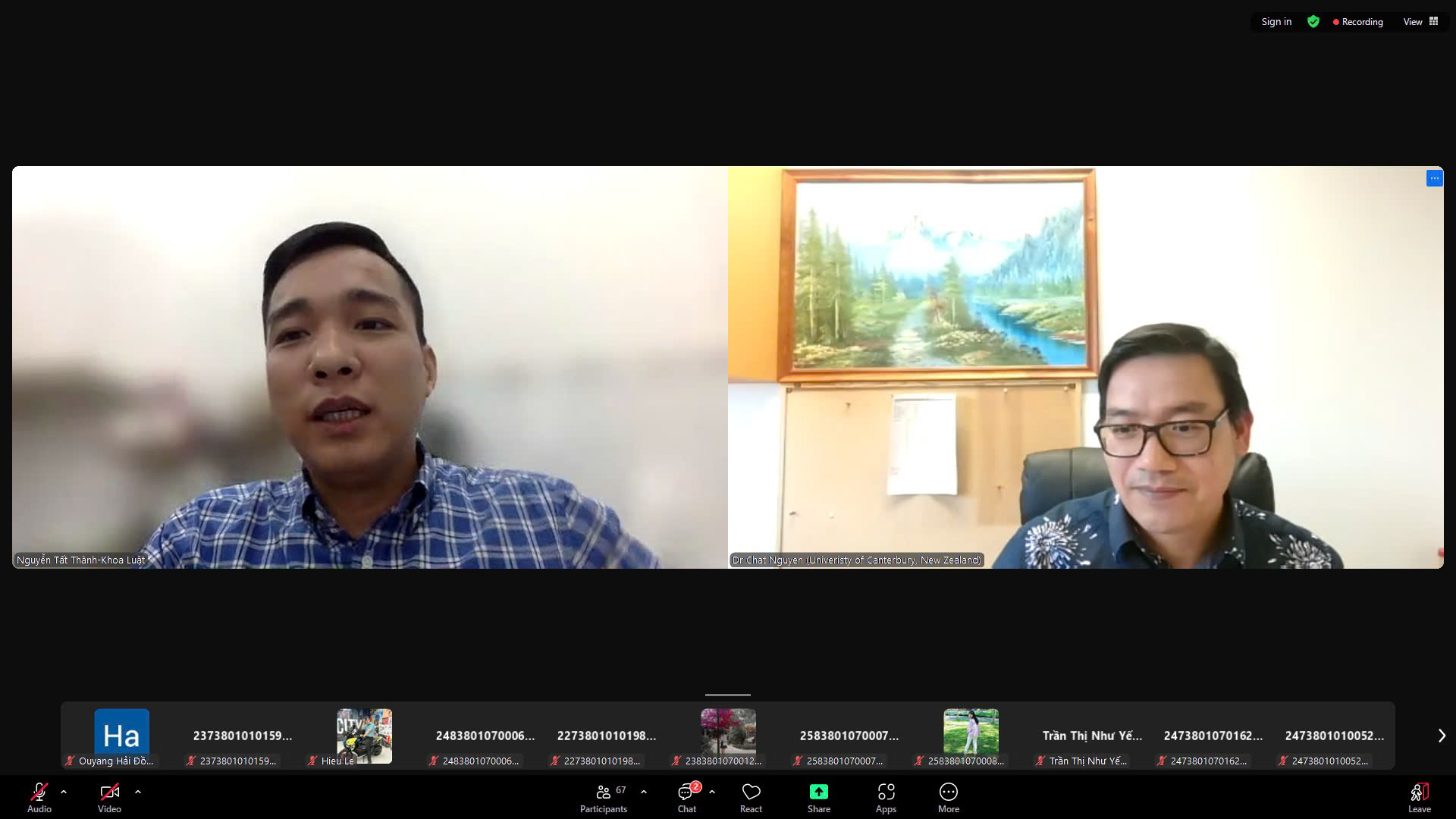Students from the Faculty of Law Study Money Laundering with Senior Lecturer from Canterbury University
On the morning of May 17, 2025, the Faculty of Law at Van Lang University organized a talk show titled “Challenges in Prosecuting Money Laundering Crimes,” featuring Dr. Le Nguyen Chat, a senior lecturer from the Law Faculty at Canterbury University, New Zealand. With extensive teaching and research experience abroad, he provided practical insights and interesting comparative perspectives, helping attendees gain a clearer understanding of the challenges in addressing money laundering crimes in Vietnam today.

Money laundering was first regulated in the Vietnamese Penal Code of 1999 and is currently governed by Article 324 of the Penal Code of 2015. Money laundering involves concealing, converting, or using property obtained from criminal activities to legitimize that money or property. Resolution No. 03/2019/NQ-HDTP has clarified the concept of “property obtained from crime” and specified the documents needed to prove predicate offenses. Predicate offenses are acts that violate criminal law (either domestically or internationally, committed by individuals or organizations from Vietnam or other countries) from which the assets obtained are subject to money laundering, provided that such acts are considered crimes under Vietnamese law and local laws. |
According to Dr. Le Nguyen Chat from Canterbury University, New Zealand, many individuals currently exploit legal loopholes, lax regulations, or tax incentives in some countries to carry out these acts. In Vietnam, cases are mostly spontaneous, whereas in developed countries, legal and financial experts are often involved.
With widespread negative impacts, money laundering is becoming a serious threat to both the economy and society. Dr. Le Nguyen Chat shared that money laundering can undermine the integrity of the financial system, leading to a loss of trust among investors and the public in financial institutions. Illegal money entering the economy distorts competition, hinders effective investment, and poses risks of instability in exchange rates, interest rates, and inflation. Socially, this behavior allows predicate crimes to continue existing and weakens the rule of law through bribery and the corruption of officials and experts. In the long run, money laundering can threaten national security, sovereignty, and social welfare.
To address this legal issue, Dr. Le Nguyen Chat noted that the Financial Action Task Force (FATF), with 40 members and two regional organizations, is enhancing global cooperation. The FATF establishes international standards, monitors compliance, and studies money laundering and terrorist financing methods to improve prevention effectiveness. Recently, the FATF placed Vietnam on the “grey list” due to ineffective management of virtual assets, limited international cooperation, and few parallel investigations and prosecutions of money laundering activities.

News: Duc Phap
Tags
Submit failed
